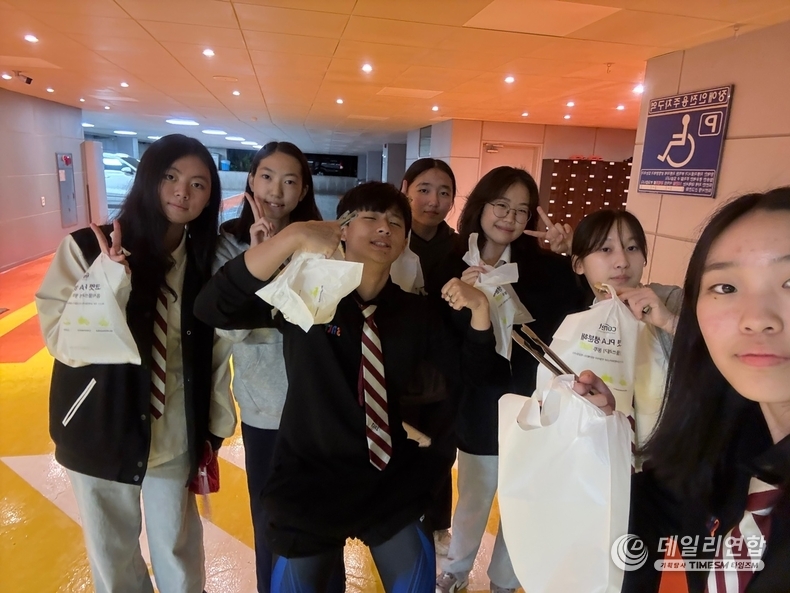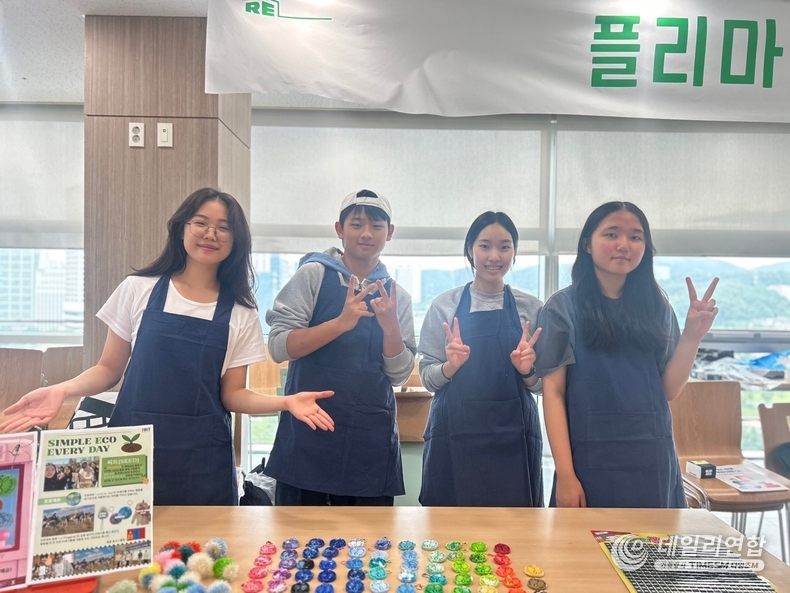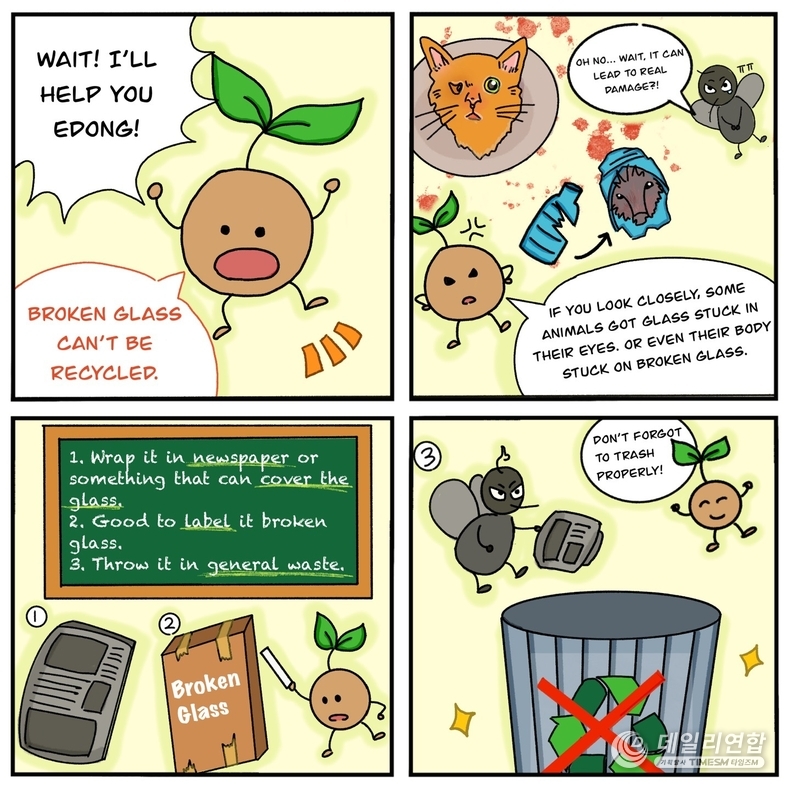By Jaehee Chung, Student Reporter (SNSJTV / Daily Union) = Where do all the plastic cups and packaging we throw away each day end up? South Korea is struggling with an escalating plastic waste crisis. In 2022 alone, the country generated 12.6 million tons of plastic waste. Globally, municipal solid waste reached 2.3 billion tons in 2023 and is projected to climb to 3.8 billion tons by 2050. The crisis is urgent, but solutions remain slow.

In response, students at SALT International School launched Team SEED (Simple Eco EveryDay)—a youth-led environmental project built on the belief that “small actions can add up to big change.” What began as a simple school effort is now seen as a leading example of Gen Z climate action.

One of their standout initiatives is hands-on sustainability. The students produced a recycling guidebook to teach proper waste separation, organized plogging events that combine jogging with litter collection, and turned everyday trash into new creations. Plastic bottle caps became colorful keychains, unused sock loops were crafted into household items, and a junk-art competition transformed discarded objects into works of art. These projects proved that student eco projects can move from classrooms into daily life.
Looking ahead, Team SEED is creating the Ecoactor Personality Test, a tool that links personality types with eco-friendly habits. Their aim is clear: help people turn one-time efforts into lasting sustainable living practices.

The team’s work also aligns with the United Nations Sustainable Development Goals (SDGs)—including Good Health and Well-Being (SDG 3), Responsible Consumption and Production (SDG 12), and Climate Action (SDG 13). By tying small steps to global goals, they show how youth-led green initiatives can connect local action to worldwide challenges.
And they’re not stopping there. Team SEED has already begun cultural exchanges with students in Mongolia and will compete in the upcoming World Competition this November. From bottle caps to international exchanges, this youth eco project proves that joy and action can go hand in hand—and that solving the global waste crisis may begin with small steps taken by students.
This article was researched and written by student reporter Jaehee Chung as part of the Student Journalism Training Program.








